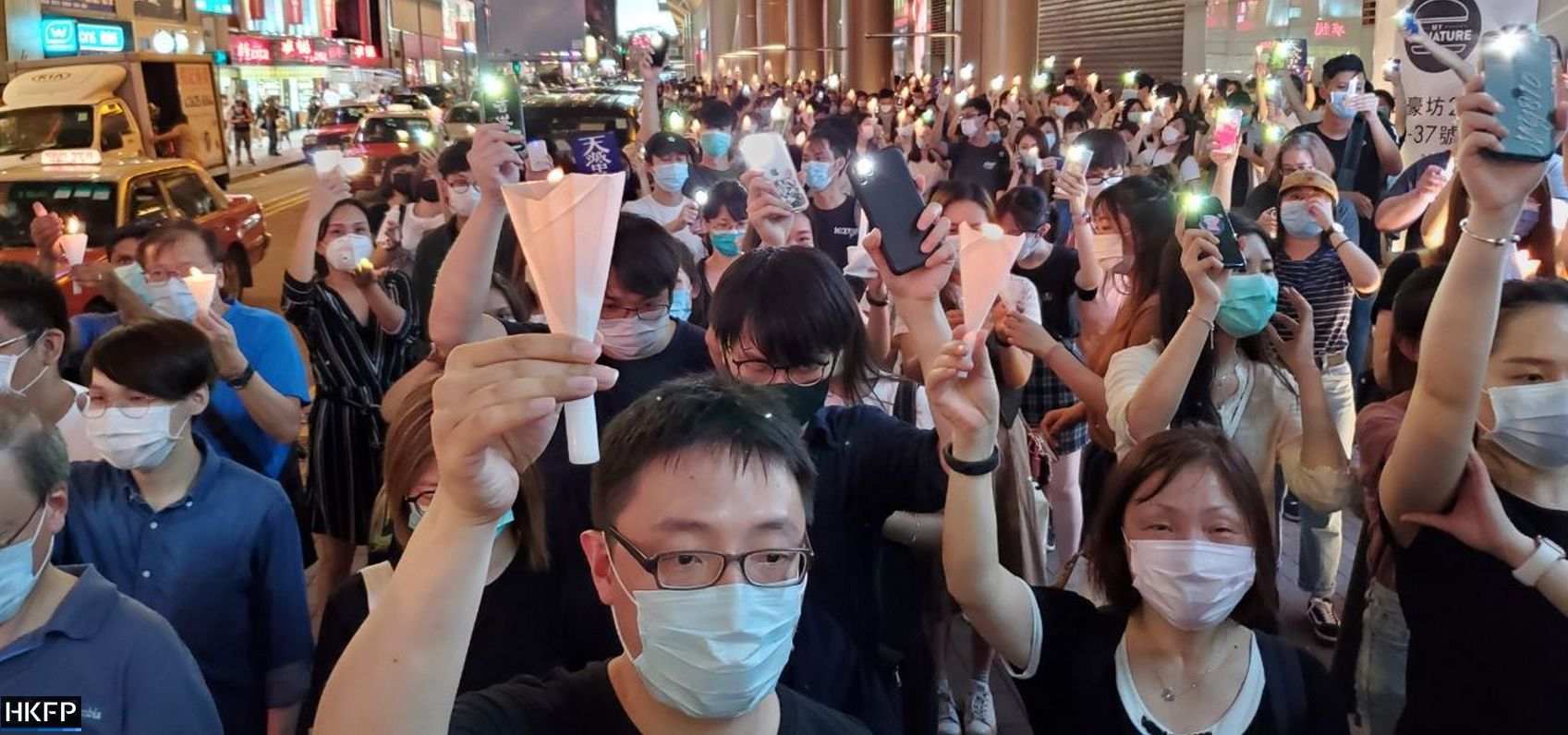
Thousands gathered in Hong Kong’s Victoria Park to attend the annual candlelight vigil commemorating the 1989 Tiananmen Square massacre on June 4—in defiance of an unprecedented police ban, ostensibly imposed as a measure to contain COVID-19. Attendees wearing surgical masks clambered over police barriers to enter the park. Organizers, the Hong Kong Alliance in Support of Patriotic Democratic Movements in China, said that participants would enter the park in groups of eight, as per the official restrictions on public gatherings. Thousands of police were on stand-by in the area, but did not intervene. The solemn occasion usually attracts tens of thousands of participants, as Hong Kong is the only place on Chinese soil where such an event can be held. (HKFP)
Police did act to prevent gatherings marking the anniversary elsewhere in the city. At least four were arrested as riot police used pepper-spray to break up a gathering of hundreds in the Mong Kok commercial district. Some participants reportedly chanted pro-independence slogans, such as “Hongkongers, build a nation” and “Hong Kong independence, the only way out.” Small commemorations were also held inside several churches around the city, without police interference. (HKFP)
In what appears to be a symbolic statement, on the same day as the commemoration Hong Kong’s Legislative Council (LegCo) approved a controversial bill that criminalizes “insult” of the Chinese national anthem. Security around the LegCo complex was beefed up before the vote, with riot police stationed around the perimeter. Offenders who are found guilty of deliberately altering the words to March of the Volunteers may now face fines of up to HK$50,000 or three years in prison. (HKFP)
Exactly a week earlier, on May 28, China’s National People’s Congress passed a first draft of the controversial “National Security Law” that extends Beijing’s control over Hong Kong. The law bans “subversion, separatism and acts of foreign interference,” and allows mainland Chinese police agencies to operate freely within Hong Kong for the first time. It also allows new “security organs” to be set up by Beijing to carry out surveillance of political opposition in Hong Kong, and make arrests. (The Guardian, BBC News, Al Jazeera, chinaworker.info)
LegCo member Dennis Kwok, of the pro-democracy Civic Party, said that passage of the National Security Law means “the end of Hong Kong, the end of one-country-two-systems.” He added: “What was supposed to be a 50-year guarantee of a high degree of autonomy has come to an end only after just 23 years. (GZERO)
Last month, a shake-up in the semi-autonomous LegCo meant a demotion for Kwok, paving the way for pro-Beijing legislation. LegCo president Andrew Leung appointed pro-Beijing lawmaker Chan Kin-por as presiding member of the House Committee, replacing Kwok. (HKFP)
Photo: HKFP





Hong Kong police ban annual pro-democracy demo
Hong Kong police have prohibited the annual pro-democracy march on July 1 on the basis of coronavirus social distancing measures and previous recent unrest, the Civil Human Rights Front (CHRF) reports. It is the first time since the protest’s inception in 2003 that it has been banned. (HKFP)